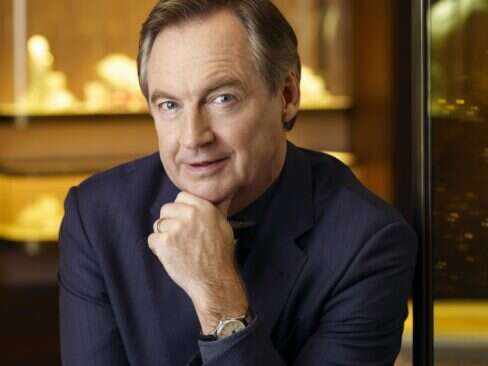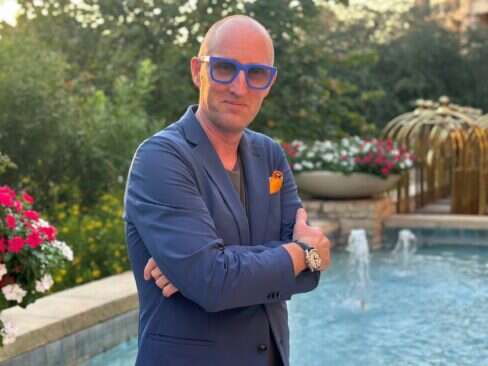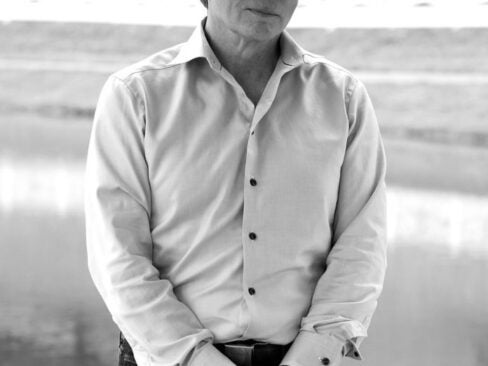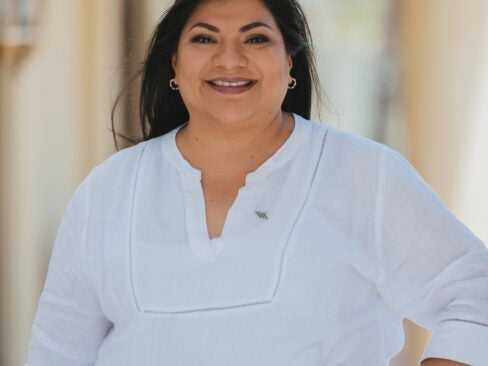
CEOLebua Hotels & Resorts
In just three years, and in the midst of a worldwide recession, Lebua Hotels & Resorts CEO Deepak Ohri has done the unthinkable: Build a thriving luxury hotel brand from the ground up.
In 2006, Ohri became Lebua’s first employee, and shortly thereafter began the daunting task of turning Bangkok’s ailing Meritus hotel into the first Lebua. The resulting five-star, all-suite hotel has gone on to win multiple awards, and Ohri himself has earned accolades like The Art of Travel’s Entrepreneur of the Year Award. What’s even more incredible is that Lebua has managed to maintain occupancy rates of over 80%, well above even more established hoteliers in Bangkok. Elite Traveler sat down with Ohri to find out the secrets to his success—and what’s on the horizon for this budding chain.
ET: Did you always know you wanted to work in the hospitality and luxury industries? What drew you to your career path?
Deepak Ohri: I chose hospitality because I was an extrovert, and my parents suggested that [hospitality] would be the right career path for me. And when I got into it, it became a passion. I enjoy doing what I’m doing so it’s like a hobby, only I’m getting paid for my hobby.
ET: Have you always liked to travel?
Deepak Ohri: I first started traveling when I joined this industry, and [now] I love it. I think last year I was in Bangkok—that’s where our base is—for no more than 78 days. So I was traveling like crazy.
ET: What’s your favorite place to travel to in your downtime?
Deepak Ohri: Lake Como [in Italy]. That’s a place where I can relax a lot.
ET: How did you end up in Bangkok working with Lebua?
Deepak Ohri: [My wife and I] got married ten years ago in India, and we came to Phuket and Bangkok for our honeymoon. My wife told me that Bangkok was the place she wanted to settle, so within a month we came back to Bangkok and I started a job. After two years, I joined Lebua and was actually their first employee.
ET: You’ve won a number of accolades, both for your hotels and your own personal accomplishments as an entrepreneur—what professional success has meant the most to you?
Deepak Ohri: I think the biggest professional success was launching the Lebua brand. That meant a lot because that was a property that we took over: That was another [brand of] hotel that we re-branded as Lebua, and we achieved great success in occupancy rates in less than six months, which is something that is unheard of in Asia in the hospitality industry. I think that was the biggest achievement.
ET: What were some of the business strategies you employed in order to successfully build a company from the ground up in the midst of a recession?
Deepak Ohri: I think we’re quite an innovative company and we think outside the box, so we implemented social media and e-commerce strategies during a time when everybody was trying to save money—nobody wanted to book through a travel agent and pay the extra money, so we adopted e-commerce and went to the consumer directly. I think that was the best strategy during a recession. Everybody saw numbers going down during the recession, and we saw an increase of 30 percent. What we also do is emotional behavior study—we tried to create more emotional experiences in our properties during the recession time, so that’s why consumers started coming in. In the next ten or twenty days, you’re going to see a new website from Lebua.com, which will be more emotional and more interactive, and I think that it will be one of the best websites in the hospitality industry. Digital is the way to go.
ET: What were the biggest challenges you faced and how did you overcome them?
Deepak Ohri: The biggest challenges, of course, were in the year 2009: One was the worldwide recession and one was the political issue in Thailand. It was a time when we actually thought, and all of our bankers and other colleagues must have thought, that we had lost it. And a week before our April closure, we spent a huge amount of money in a new acquisition, and thought maybe we should put it on hold. So our cash flow was down to minimum the day before closure, and there was a moment when I thought, “the ship is going to sink.” That was the time that we went to the employees and requested to cut their salaries, we went to the suppliers and we cut costs there, we took out extra credit, and I think we are the first [company] to bounce back—because at the same time as we were cutting costs, we actually invested in the social media, and I think that is the strategy that paid off. By the beginning of July we saw that we were bouncing back, and we’re quite happy about the steps we took.
ET: You’ve maintained occupancy rates over 80% in Bangkok. What makes Lebua properties so special—what keeps guests coming back?
Deepak Ohri: I think it’s the emotional bonding. Normally when you’re booking a hotel, you’re just looking at what kind of room you’re getting, how much you’re paying, and how many nights you’re going to stay. In this, everything is very rational. And there are very few hotels which can add the emotional perspective to this rational [aspect]. So what we do is we add a lot of emotions, a lot of experiences, so when the customers leave the property, they actually take pause, look back and think that where in the world can they get an experience like that? And when the answer is “nowhere,” or only a very few places, then that answer brings them back to Lebua. I think that has been our strategy, adding emotions in each and every step the consumer will be taking, so that he always thinks, “wow.” And that is actually the word that the consumer speaks. We actually ensure that we follow that step. So our front end is very easy—it’s full of staff, very friendly—but our back end is more complicated in terms of what goes on behind the scenes, trying to understand [consumer] behavior, seeing how many of them are coming back again, or if they are not coming back again, how do we get them to.
ET: Do you find that travelers are more discriminating these days? How do you meet the demands of a very elite customer, for whom money is no object?
Deepak Ohri: I think travelers are very intelligent to begin with, but [in recent years], suddenly there was so much hype that travelers were just going for the brands that were spoken about most often. Eventually it got to the point where travelers said, “you know what, we don’t believe in anyone, we’re going to do our own research.” Now travelers have become more choosy in terms of experience, and they’re looking at more emotional value rather than rational value. So in this time you’ll see that most of the luxury brands which are [just] adding the rational value will be down by 20 to 30 percent, and the luxury brands which are giving the emotional experience, their sales will be up. In the end, there will be only a few limited luxury brands that will really be doing well—Lebua being one of them with our properties in Bangkok and New Zealand doing well—because we’re adding the emotional experience.
ET: Describe what that “emotional experience” means to you.
Deepak Ohri: Just to give you an idea of something very small, an emotional experience is if you go to a restaurant and you’re talking to a companion the entire time, and without anyone interrupting your conversation, you’re getting your food and your wine served, and you don’t even have to look up. When you visit our property in New Zealand, where a lot of our guests are jet-lagged because of the long flight there, if you need something at two o’clock in the morning, our butlers are there and they’ll cook for you. We try to understand our guests and where they’re coming from and try to adapt to their culture, thus adding more emotional value to their experience. If someone comes from, for example, Germany, and you talk to them in German, that guest is impressed and knows that he belongs there, that there’s someone there on whom he can rely. It’s about small things—emotional values are always very small.
ET: What’s new at Lebua Bangkok and Lebua New Zealand? Can you describe some of their best attributes for readers who might not be familiar with the properties?
Deepak Ohri: At Bangkok we just launched the Tower Club. When you check in at the Tower Club, you don’t have to worry about your mini-bars or watching movies and paying fees for that. There’s four or five presentations a day in terms of meals, there’s a personal concierge who’s looking after you, so I think it’s altogether a great experience. And our property in New Zealand gives guests a very different dimension to the whole experience of New Zealand. One of the guests we had who planned to stay six weeks ended up extending his stay six months. And this was a very well-known person in the United States. New Zealand is a country that is very scenic. When you stay at our lodge, you feel like you don’t have to leave, because you have everything on the property: You’ve got a walking trail, you’ve got a bush walk, you can do hunting within the property, they’ve got six or seven scenic spots where you can dine, there are two dining options within the property itself, there’s a spa. You can do boating, you can do water-skiing, you can do fishing—and to do all these things you don’t even have to move an inch off the property.
ET: Can you outline some of your future plans for the company?
Deepak Ohri: We are getting into chateaus—we are buying chateaus and converting them into top-of-the-line exclusive hotels. That will be by invitation only—you may be able to pay the money, but then you have to be invited to stay there as a guest. Then we’re getting into a lot of restaurants in Sydney, Hong Kong, L.A., London—top-of-the-line restaurants.
ET: What are your longer-term goals for the brand? Where do you hope to see Lebua in ten or twenty years?
Deepak Ohri: I think within ten years, if in the luxury dining and accommodations world a synonymous word has to be said, that word would be “Lebua”.
Visit www.lebua.com.










